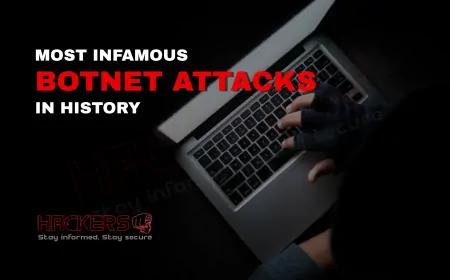Which Is Better for Hands-On Skills | CEH or OSCP?
So, you’re diving into the world of cybersecurity, itching to get your hands dirty with real hacking skills. You’ve heard about the Certified Ethical Hacker (CEH) and Offensive Security Certified Professional (OSCP) certifications, but which one will truly make you a hands-on pro? Both are heavyweights in the ethical hacking world, yet they approach practical skills differently. Whether you’re a beginner dreaming of breaking into systems (ethically, of course) or an IT pro looking to sharpen your toolkit, choosing the right certification is crucial. In this blog, we’ll compare CEH and OSCP, focusing on how they build hands-on skills, their strengths, and which one suits your goals. Ready to find your path to hacking mastery? Let’s break it down!

Table of Contents
- What Is the CEH Certification?
- What Is the OSCP Certification?
- How CEH and OSCP Approach Hands-On Skills
- CEH’s Hands-On Elements
- OSCP’s Hands-On Elements
- Key Differences in Hands-On Training
- Who Should Choose CEH or OSCP?
- Comparison Table: CEH vs. OSCP for Hands-On Skills
- Preparation Strategies for Each
- Career Impact for Hands-On Roles
- Tips to Maximize Hands-On Learning
- Conclusion
- FAQs
What Is the CEH Certification?
The Certified Ethical Hacker (CEH) certification, offered by the EC-Council, teaches you to think like a hacker to secure systems. It covers 20 domains, like reconnaissance (gathering target info), scanning networks, and social engineering (tricking people into sharing data). The main CEH exam is a four-hour, 125-question multiple-choice test, requiring a 60-85% pass rate (version 12 in 2025). It’s theory-focused, testing your knowledge of tools like Nmap (network scanner) or terms like “buffer overflow” (overloading a program’s memory).
CEH also offers a hands-on option, the CEH Practical, a six-hour exam with 20 challenges in a virtual lab. You must pass the multiple-choice exam first to attempt it. Eligibility requires either official EC-Council training (five days, $2,000-$3,000) or two years of IT security experience. The exam alone costs ~$1,199. CEH is beginner-friendly, ideal for those new to cybersecurity.
What Is the OSCP Certification?
The Offensive Security Certified Professional (OSCP), from Offensive Security, is a hands-on, penetration testing-focused certification. It’s designed to prove you can hack systems in real-world scenarios. The exam is a grueling 24-hour test where you must compromise multiple machines in a virtual lab and submit a detailed report. You need to score at least 70 points by exploiting vulnerabilities.
OSCP requires no formal prerequisites, but Offensive Security recommends their Penetration Testing with Kali Linux (PWK) course ($999-$1,499). It’s not beginner-friendly most candidates have IT or hacking experience. The exam costs $1,499, including the course and one attempt. OSCP is renowned for its rigor and hands-on focus, making it a gold standard for pen testers.
How CEH and OSCP Approach Hands-On Skills
Both certifications aim to build practical skills, but their approaches differ:
- CEH: Emphasizes theory with optional hands-on via CEH Practical. It teaches how tools work and when to use them, with practice in controlled labs.
- OSCP: All about hands-on from the start. You’re thrown into real-world hacking scenarios, learning by doing in complex, unguided environments.
CEH builds a foundation for understanding hacking; OSCP demands you apply it under pressure. Let’s dive deeper into each.
CEH’s Hands-On Elements
The CEH multiple-choice exam is theory-heavy, but the CEH Practical adds hands-on depth. In the Practical, you face 20 challenges over six hours, such as:
- Exploiting web app vulnerabilities (e.g., SQL injection).
- Cracking passwords using tools like John the Ripper.
- Escalating privileges (gaining higher system access).
You use tools like Metasploit (exploitation framework) in a virtual lab. Preparation involves practicing in EC-Council’s iLabs or platforms like TryHackMe. However, the Practical is optional and requires the multiple-choice certification first, so hands-on skills are secondary to theory for most CEH candidates.
CEH’s hands-on training is structured and guided, making it easier for beginners to learn tools and techniques systematically.
OSCP’s Hands-On Elements
OSCP is hands-on from the ground up. The PWK course includes a lab with 50+ machines to hack, simulating real networks. You’ll learn to:
- Enumerate systems (find weaknesses) using Nmap.
- Exploit vulnerabilities with custom scripts or Metasploit (limited use).
- Pivot through networks (move between systems).
- Write detailed penetration test reports.
The 24-hour exam tests your ability to hack five machines, requiring creativity and persistence. OSCP’s “Try Harder” motto emphasizes unguided problem-solving, mimicking real-world pen testing. It’s intense, with a 30-40% pass rate, but it builds elite hands-on skills.
Key Differences in Hands-On Training
- Focus: CEH balances theory and practice; OSCP is 90% hands-on.
- Difficulty: CEH Practical is structured and beginner-friendly; OSCP is unguided and advanced.
- Time: CEH Practical is six hours; OSCP exam is 24 hours plus reporting.
- Prerequisites: CEH needs training or experience; OSCP assumes technical knowledge.
- Tools: CEH teaches tool usage; OSCP requires scripting and tool customization.
- Cost: CEH is $1,199 (exam) + $550 (Practical); OSCP is $1,499 (course + exam).
Who Should Choose CEH or OSCP?
Choose CEH if:
- You’re a beginner with little to no IT experience.
- You want a broad cybersecurity foundation before specializing.
- You prefer structured learning with some hands-on practice.
- You’re targeting roles like security analyst that value theory.
Choose OSCP if:
- You have IT experience (e.g., networking, Linux).
- You’re focused on penetration testing or hands-on roles.
- You thrive in unguided, challenging environments.
- You can commit to intense, self-directed study.
Beginners should start with CEH, then consider OSCP later. Experienced pros can jump to OSCP for deeper skills.
Comparison Table: CEH vs. OSCP for Hands-On Skills
| Aspect | CEH (Practical) | OSCP |
|---|---|---|
| Focus | Theory + guided hands-on | Intense hands-on |
| Exam Format | 6 hours, 20 challenges | 24 hours, 5 machines + report |
| Difficulty | Moderate, beginner-friendly | High, advanced |
| Prerequisites | CEH multiple-choice | Technical experience |
| Cost | $1,199 + $550 | $1,499 |
| Best For | Beginners, broad roles | Experienced, pen testers |
Preparation Strategies for Each
CEH Preparation (3-6 months):
- Study the syllabus: Focus on 20 domains, using “CEH All-in-One Exam Guide.”
- Use iLabs: Practice tools like Metasploit in EC-Council’s virtual lab.
- Try platforms: TryHackMe or HackTheBox for guided exercises.
- Take mock exams: 5-10 tests for the multiple-choice; practice challenges for Practical.
- Join communities: Reddit’s r/CEH for tips.
OSCP Preparation (4-8 months):
- Take PWK course: Access Offensive Security’s lab with 50+ machines.
- Master Linux: Learn Bash scripting and command-line navigation.
- Practice hacking: Use HackTheBox or VulnHub for unguided challenges.
- Learn scripting: Python or Bash for custom exploits.
- Simulate the exam: Hack machines in 24 hours, write reports.
CEH needs ~200 hours; OSCP, ~300-400 hours due to its intensity.
Career Impact for Hands-On Roles
CEH: Great for entry-level roles like security analyst ($80,000-$110,000), where theory and basic skills suffice. The Practical adds credibility for junior pen testing roles ($90,000-$120,000).
OSCP: The gold standard for penetration testers ($90,000-$150,000). Employers like Deloitte or IBM value OSCP for its proven hands-on expertise. It’s ideal for specialized, technical roles.
CEH gets you in the door; OSCP makes you a star in hands-on positions.
Tips to Maximize Hands-On Learning
- Build a home lab: Use VirtualBox with Kali Linux for practice.
- Join CTFs: Capture The Flag events on HackTheBox sharpen skills.
- Stay updated: Follow blogs like The Hacker News for trends.
- Network: Connect on LinkedIn or DEF CON for mentorship.
- Document work: Create a portfolio of lab hacks to show employers.
Conclusion
Choosing between CEH and OSCP for hands-on skills depends on your experience and goals. CEH, with its optional Practical exam, offers a beginner-friendly mix of theory and guided practice, perfect for those starting in cybersecurity or targeting broad roles. OSCP, with its intense, unguided hacking focus, is the go-to for experienced pros aiming for elite penetration testing jobs. Both build hands-on skills, but CEH is a stepping stone, while OSCP is a deep dive. Assess your skills, time, and career aspirations start with CEH if you’re new, or tackle OSCP if you’re ready for a challenge. Whichever you choose, practice in labs and stay persistent. Your hands-on hacking journey starts now!
FAQs
What is CEH certification?
A beginner-friendly credential teaching ethical hacking theory and optional hands-on skills.
What is OSCP certification?
An advanced, hands-on penetration testing certification requiring real-world hacking skills.
Which is better for hands-on skills?
OSCP for intense, unguided practice; CEH for guided, beginner-friendly tasks.
Can beginners take OSCP?
Not easily—OSCP requires IT or hacking experience.
Is CEH hands-on enough for pen testing?
CEH Practical helps, but OSCP is stronger for pen testing.
How long to prepare for CEH?
3-6 months, ~200 hours.
How long to prepare for OSCP?
4-8 months, ~300-400 hours.
How much does CEH cost?
$1,199 (exam) + $550 (Practical); training $2,000-$3,000.
How much does OSCP cost?
$1,499 (course + exam).
Which is harder, CEH or OSCP?
OSCP, due to its 24-hour unguided exam.
Do I need CEH before OSCP?
No, but CEH helps beginners build a foundation.
What tools are used in CEH?
Nmap, Metasploit, Burp Suite, Wireshark.
What tools are used in OSCP?
Nmap, Metasploit (limited), Python, Bash scripts.
Is CEH recognized by employers?
Yes, for entry-level and analyst roles.
Is OSCP recognized by employers?
Yes, especially for pen testing roles.
Can I self-study for CEH?
Yes, with experience or training.
Can I self-study for OSCP?
Yes, but PWK course is recommended.
Which is better for beginners?
CEH, due to its structured, theory-based approach.
Which has a higher pass rate?
CEH (~70-80%); OSCP (~30-40%).
Can I do both CEH and OSCP?
Yes, start with CEH, then OSCP for advanced skills.
What's Your Reaction?










































































